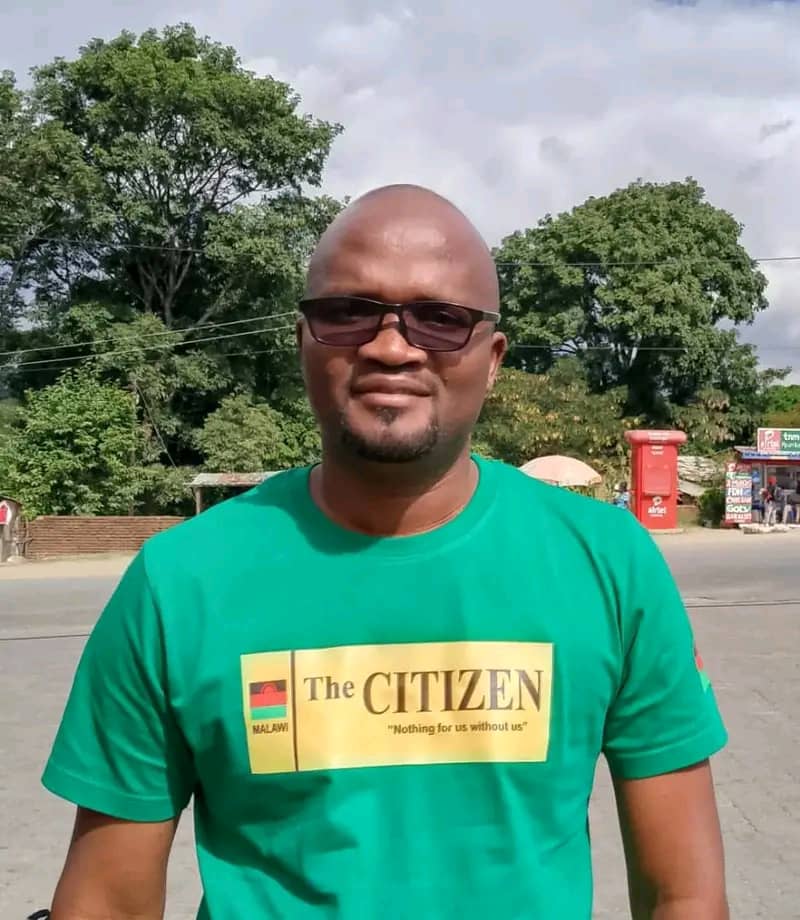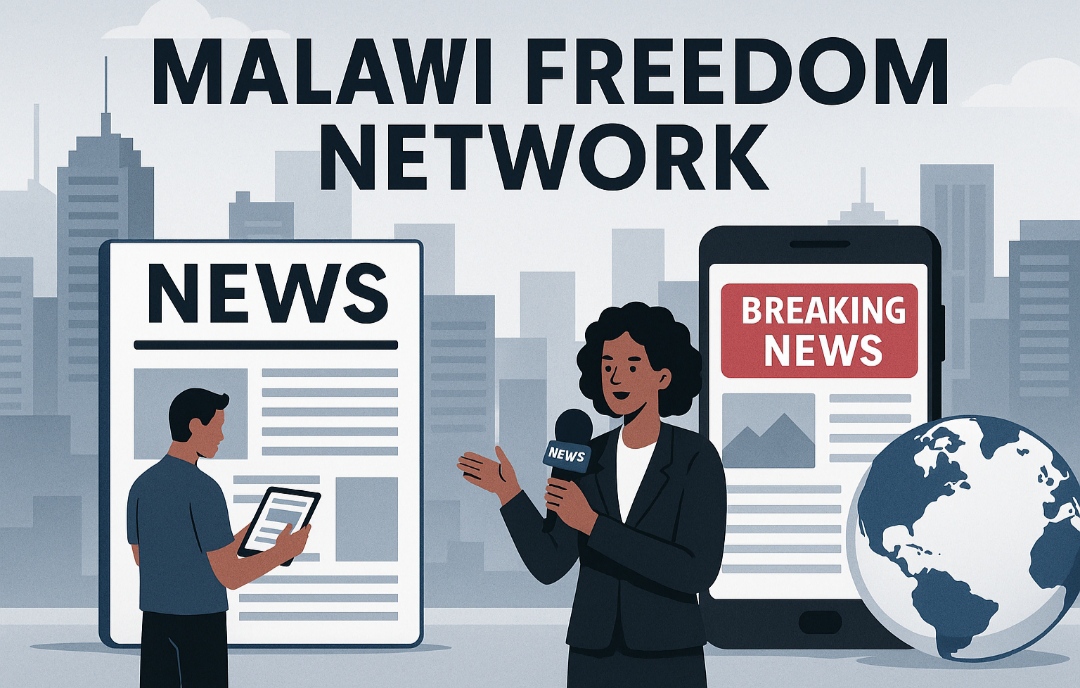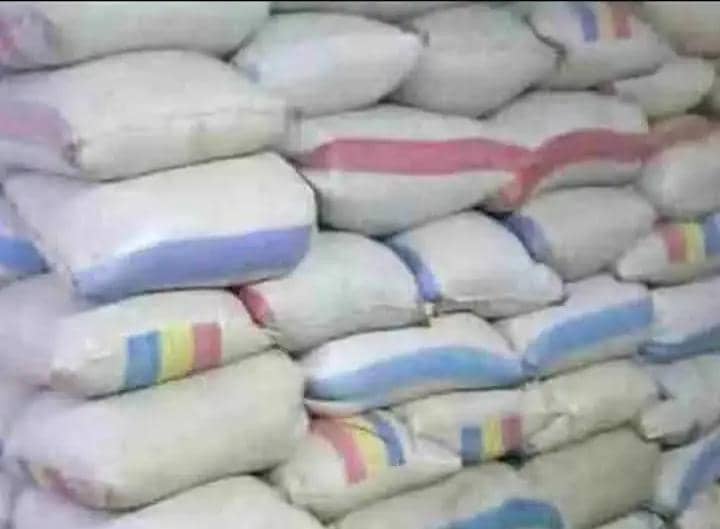By Burnett Munthali
In the face of mounting discontent and economic instability, Malawians are preparing for large-scale demonstrations on December 19, 2024, aimed at holding the government accountable and demanding President Lazarus Chakwera’s impeachment. Civil society leader Edwards Kambanje provided his perspectives on the motivations, challenges, and expected outcomes of the protests in this exclusive interview.
Q: The planned December 19 demonstrations have gained significant attention. What has motivated this call for action, and why now?
Kambanje: The protests are driven by widespread frustration over food insecurity, fertilizer shortages, and the currency crisis. Citizens feel abandoned by the government, which has consistently failed to address these pressing issues. The timing reflects a tipping point: people can no longer endure the hardships caused by mismanagement and lack of decisive action.
Q: Food insecurity is a critical issue. What do you identify as the root causes, and how should the government address them?
Kambanje: Food insecurity stems from climate change, outdated agricultural practices, and the unaffordability of fertilizers. Additionally, inadequate government support and poor infrastructure have exacerbated the crisis. To address this, the government must prioritize investment in sustainable farming practices, improve rural infrastructure, and ensure affordable access to agricultural inputs.
Q: Affordable fertilizers under the Affordable Inputs Program (AIP) have been a major concern. What is your take on the program, and what improvements do you recommend?
Kambanje: The AIP has failed due to mismanagement, delays, and rampant corruption. Immediate action is needed to streamline the distribution process, eliminate intermediaries, and implement strict oversight mechanisms. Without these reforms, the program will continue to fail the very farmers it was designed to support.
Q: How has the foreign currency shortage impacted Malawians, and what solutions would you suggest?
Kambanje: The currency shortage has caused price hikes and shortages of essentials like fuel and medical supplies. Ordinary Malawians are bearing the brunt of this crisis. The government must prioritize boosting exports, reducing non-essential imports, and implementing policies that attract foreign investment.
Q: Corruption in public institutions like the MEC and NRB is a recurring issue. What measures would you suggest to restore accountability?
Kambanje: Corruption thrives when leadership is weak and oversight is lacking. To restore accountability, the government must conduct independent audits of institutions like the MEC and NRB, ensure transparency, and implement strong penalties for those found guilty of mismanagement or corruption.
Q: Many feel the Tonse Alliance has failed to deliver on its promises. What went wrong, and how does this relate to the protests?
Kambanje: The Tonse Alliance, largely seen as an MCP government, made lofty promises about economic growth and poverty reduction but failed due to poor planning and governance. This disillusionment has fueled protests as citizens demand the leadership they were promised.
Q: Protesters are calling for President Chakwera’s impeachment. Do you support this, and do you think it is a viable solution?
Kambanje: Impeachment is necessary because the root problem lies in leadership. The government has lost direction and must be held accountable. However, systemic issues like corruption and inequitable wealth distribution also need to be addressed alongside leadership changes.
Q: What role do civil society organizations (CSOs) play in these demonstrations?
Kambanje: CSOs are pivotal in organizing protests and raising public awareness. Their efforts ensure that citizens’ voices are heard and that the government is held accountable. Public participation is essential to demand change and shape the nation’s future.
Q: Critics argue that protests could disrupt businesses and public services. How do you respond?
Kambanje: Disruptions are an unfortunate consequence of protests, but they are a necessary expression of democratic rights. The hardships caused by mismanagement are far greater than any short-term disruptions caused by the protests.
Q: How do you see these protests influencing the 2025 elections?
Kambanje: The protests will undoubtedly shape the political landscape. If the government fails to respond effectively, it risks losing public trust and facing significant challenges in the upcoming elections.
Q: Some believe the government may downplay the protests. Do you agree?
Kambanje: Downplaying the protests would be a grave mistake. Ignoring the people’s frustration will only deepen the divide between the government and its citizens, further alienating the public.
Q: What outcome do you expect from the December 19 protests?
Kambanje: The protests will highlight the people’s demand for change. Whether progress is achieved or frustration escalates depends entirely on how the government responds. The ball is in their court.
Q: Finally, what is your message to Malawians who are uncertain about participating in the protests?
Kambanje: To those unsure, I say this: participation is crucial to securing a better future. Standing up now is the only way to break the cycle of mismanagement and ensure that our voices are heard. Change begins with us.
In conclusion, the December 19 protests represent a pivotal moment in Malawi’s democratic journey. As citizens rally for accountability and leadership reform, the government’s response will determine whether the nation moves toward progress or continues to face growing discontent. Comrade Kambanje’s insights remind us of the power of collective action and the importance of standing firm for the future of Malawi.




